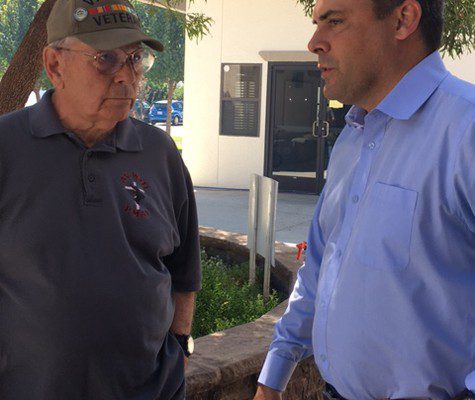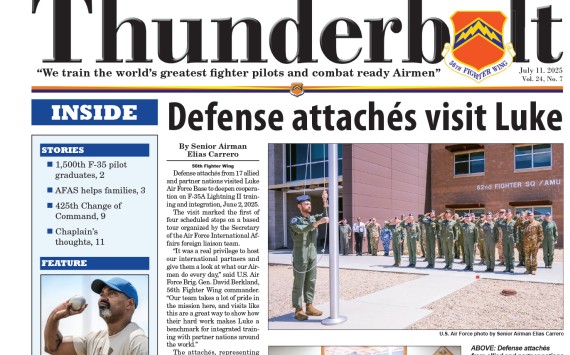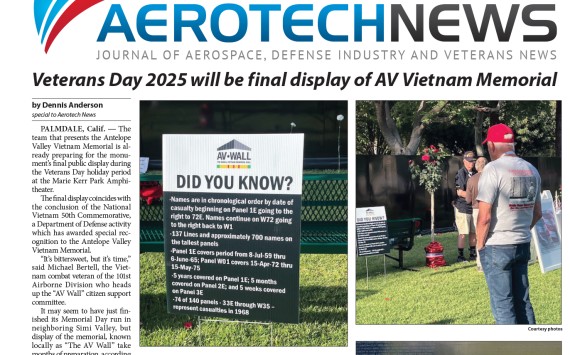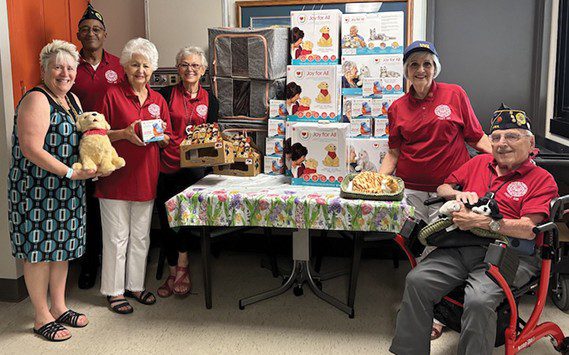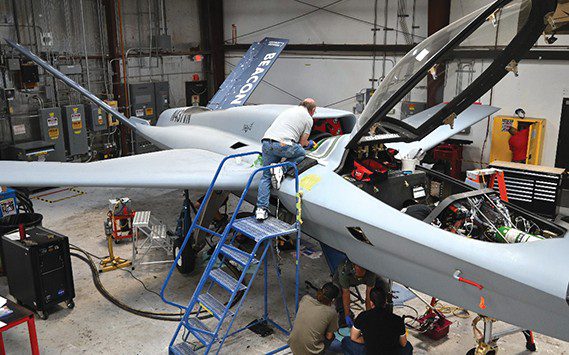LANCASTER, Calif.— This year, as in every year since the AV Veterans Outreach began, an underlying question was how much better or worse veterans are served by the government they fought to protect and defend.
Opinions vary, but the official scorekeepers, elected lawmakers, have both inside information on agency performance and the opportunity to fight for improvements and reforms.
Congressman Michael Garcia, representing California’s 25th Congressional district and the highest-ranking federal official at the Aug. 28 Veterans Outreach, shared with Aerotech News his assessment of performance by the Veterans Administration. He said the VA showed modest improvement in delivering physical care of veterans in its hospitals and clinics, and to a lesser extent, better treatment of veterans suffering from emotional war wounds.
“The VA has improved since 2017, the difference being that once you get into the system it’s easier to work with the VA,” he said.
But for the decades’ old and seemingly intractable issue, chronic homelessness among veterans and their families, Garcia and other regional lawmakers remain unsatisfied.
Former Navy fighter pilot and decorated Iraq war veteran Garcia gives the VA negative reviews for its reluctance to recognize and replace outdated policies and procedures that lead to delay and frustration for vets trying to navigate the system.
Garcia said that because of systemic VA incompetence, Congressional office staffers spend countless hours interceding with the VA on behalf of frustrated constituents. Pointing to his AV District Officer Staff Director Christine Ward, who accompanied him to the Aug. 28 event, the congressman said, “Chris Ward here is the best. She has the heart for it” He estimates 25 to 30 percent of his staff’s time is spent dealing with veteran issues that could and should have been resolved at the VA. Garcia said fortunately veterans living in this region of Southern California have a powerful advocate and strong ally in House Minority Leader Kevin McCarthy, R-Bakersfield.
Also present with staff at the Veterans Outreach was 36th District California Assemblyman Tom Lackey, accompanied by Field Office Representative Anna Zarley, who specializes in helping veterans at the state level.
Homelessness among veterans returning from war is nothing new. Huge numbers of veterans were homeless in America after the Civil War, World War I, in the Great Depression of the 1930s, and following World War II. Today, the nation’s distressed and homeless veterans are the warriors from subsequent conflicts in Korea in the 1950s, Vietnam in the 1960s and 1970s, NATO conflicts in the Balkans in the 1980s, and subsequent combat throughout the Middle East, culminating now in Afghanistan.
Despite last week’s expressed level of concern for finding solutions to end homelessness among veterans, statistical evidence about causes, remedies, numbers, successes, failures and even geographical distribution of the phenomenon varied widely from place to place across the country. Because of differences in reporting methods and statistical methods used between reporting agencies it’s not always possible to compare and contrast numbers to find a one-size-fits all solution.
This year the VA sent a diversified group of agents to Lancaster, each prepared to deal face-to-face with veterans on matters of VA benefits, medical issues and housing. Once again, VA-contracted Mental Health America of Los Angeles sent a Health Care Navigator, Veronica Wright, from its Operation Healthy Homecoming office in the Military Resource Center in Palmdale.
Operation Healthy Homecoming focuses on housing for veterans and their families who are homeless or at serious risk of becoming homeless.
Challenges of finding housing for homeless vets and the dependents are often widely different. One couple arriving early in the day presented an uncommon challenge: The husband is a Navy veteran and unemployed glazer, whose wife works as a schoolteacher. Because of crushing debt she incurred when abandoned by her former husband, a military vet, the couple now classified as working poor, has been homeless for two years.
Just after 1 p.m., as the event was closing, the couple sat in conversation with a VA Housing representative under a shade fixture in the courtyard between the host Calvary Chapel and its events building. Outcome to be decided.






